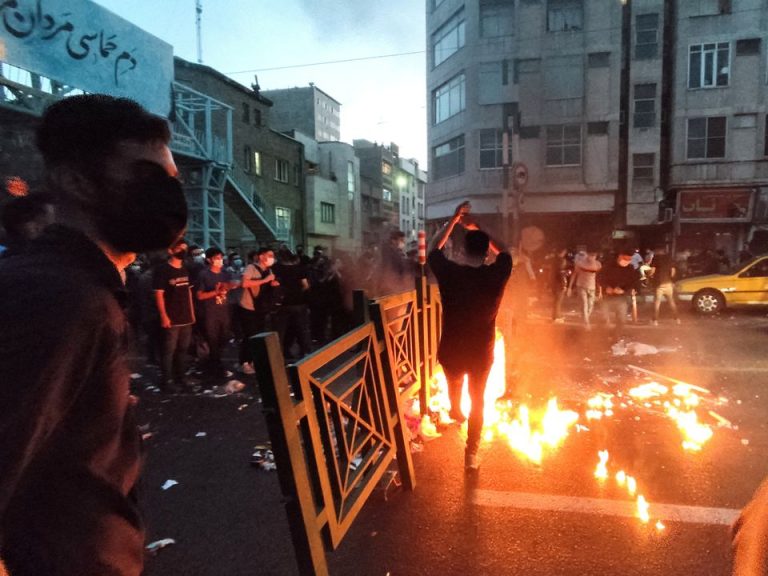
(Reuters) – Iran must deal decisively with protests which have swept the country after the death in custody of a woman detained by the Islamic Republic’s morality police, President Ebrahim Raisi said on Saturday.
At least 41 people have been killed in the week-long unrest, state television said on Saturday. It said that toll was based on its own count and official figures were yet to be released. Protests have erupted in most of the country’s 31 provinces. State media quoted Raisi on Saturday as saying Iran must “deal decisively with those who oppose the country’s security and tranquillity.”
Raisi was speaking by telephone to the family of a member of the Basij volunteer force killed while taking part in the crackdown on unrest in the northeastern city of Mashhad.
The president “stressed the necessity to distinguish between protest and disturbing public order and security, and called the events … a riot,” state media reported. The protests broke out in northwestern Iran a week ago at the funeral of Mahsa Amini, a 22-year-old Kurdish woman who died after falling into a coma following her detention in Tehran by morality police enforcing hijab rules on women’s dress.
Her death has reignited anger over issues including restrictions on personal freedoms in Iran, the strict dress codes for women, and an economy reeling from sanctions. Women have played a prominent role in the protests, waving and burning their veils. Some have publicly cut their hair as furious crowds called for the fall of Supreme Leader Ayatollah Ali Khamenei.
The protests are the largest to sweep the country since demonstrations over fuel prices in 2019, when Reuters reported 1,500 people were killed in a crackdown on protesters – the bloodiest confrontation in the Islamic Republic’s history.
On Friday, state-organised rallies took place in several Iranian cities to counter the anti-government protests, and the army promised to confront “the enemies” behind the unrest.
In neighbouring Iraq, dozens of Iraqi and Iranian Kurds rallied outside the United Nations compound in the northern city of Erbil on Saturday, carrying placards with Amini’s photograph and chanting “death to the dictator,” referring to Khamenei.
State television in Iran, which has accused armed exiled Iranian Kurdish dissidents of involvement in the unrest, said Iranian Revolutionary Guards had fired artillery on bases of Kurdish opposition groups in the Kurdish region of northern Iraq.






